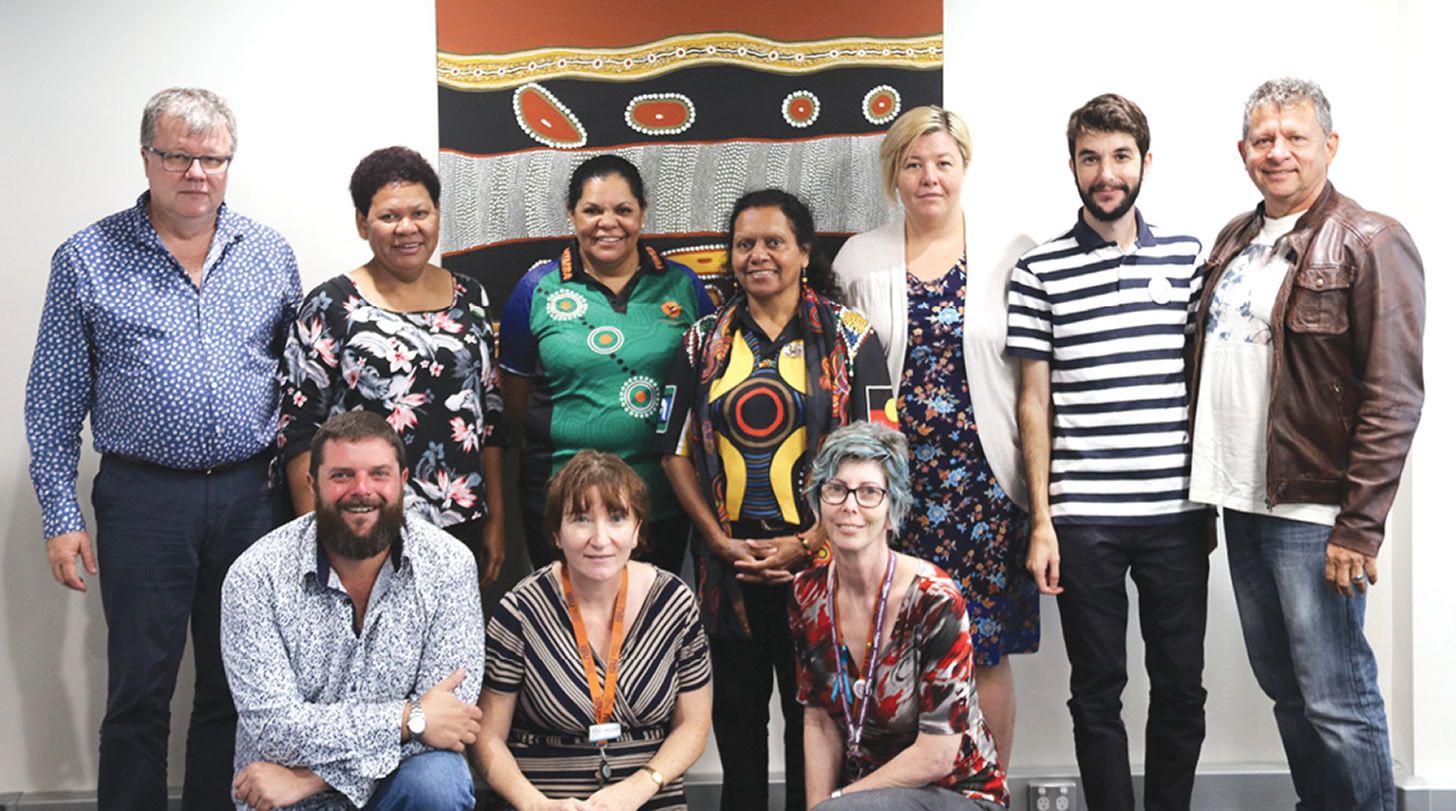Implementing a Reconciliation Action Plan is a practical way for early childhood education centres to support Australia’s national reconciliation movement, writes IEU journalist Emily Campbell.
The process of reconciliation aims to promote and facilitate respect, trust and positive relationships between First Nations peoples and the wider Australian community. A Reconciliation Action Plan (RAP), therefore, provides a framework for participating organisations to take practical steps towards achieving reconciliation.
Solid foundation
The IEUA-QNT formed the Yubbah Action Group (pictured above) with First Nations members to oversee the development of our union’s own RAP.
“RAP is, in essence, a formalisation of an organisation’s commitment to do something about reconciliation in that it details specific actions that can be undertaken to further the cause,” said IEUA-QNT research officer Adele Schmidt, who is a member of the group.
“In practice, many organisations find that once they’ve developed a RAP, their interactions with First Nations stakeholders take off and they can envision and enact new ways of working.”
IEUA-QNT Branch Secretary and Caretaker of the union’s RAP, Terry Burke, said the actions reflect our union’s belief that building and maintaining meaningful engagement with First Nations members and their local communities is an important and necessary step to achieving reconciliation in Australia.
“Union values are also reconciliation values based on partnerships, solidarity, activism, justice, collectivism and inclusivity,” Burke said.
“This commitment goes beyond industrial matters like wages and conditions – it is about using our collective strength to make positive changes in our workplace, our community and our society.”
Practical plan
Reconciliation Australia’s Narragunnawali program supports early childhood education centres and schools to design, implement and review their own RAPs.
The key steps for developing a plan include:
- establish a working group
- complete the reflection survey
- write a vision for reconciliation
- add actions
- submit the plan
- refresh the plan.
Take actions
Actions are the specific commitments included in a RAP. They relate to relationships, respect and opportunities within the early childhood education centre and with the community.
Although a minimum of 14 “required” actions must be included in a RAP for it to be considered complete, Narragunnawali details a list of 40 potential actions early childhood education centres can implement.
Centres looking to complete their first RAP may choose to start at the “Reflect” level.
Reconciliation Australia states: “A Reflect RAP clearly sets out the steps you should take to prepare your organisation for reconciliation initiatives in successive RAPs. Committing to a Reflect RAP allows your organisation to spend time scoping and developing relationships with Aboriginal and Torres Strait Islander stakeholders, deciding on your vision for reconciliation and exploring your sphere of influence, before committing to specific actions or initiatives.”
Here are the 14 compulsory actions in a “Reflect” RAP framework:
- include Aboriginal and Torres Strait Islander people in the classroom
- provide cultural competence for staff
- provide a Welcome to Country
- celebrate National Reconciliation Week
- build relationships with community
- teach about reconciliation
- explore current affairs and issues
- provide an Acknowledgement of Country
- display Aboriginal and Torres Strait Islander flags
- take action against racism
- consider Aboriginal and Torres Strait Islander people when curriculum planning
- develop inclusive policies
- encourage staff engagement with these actions
- celebrate progress.



































































































































